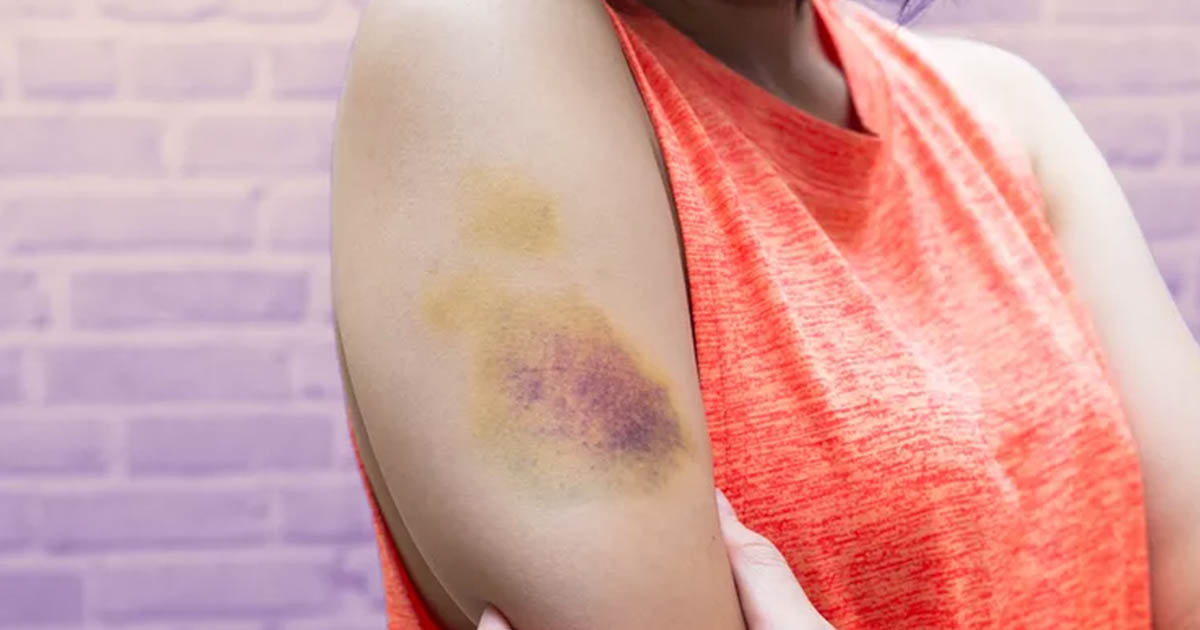Have you noticed that you seem to get bruises from the slightest bump or knock? Perhaps you seem to wake up every morning with at least one mystery bruise, having no idea where it came from? Easy bruising can be concerning and can sometimes be a sign of an underlying health issue. In this article, we will explore 10 reasons why you may be bruising easily and what you can do about it.
What are Bruises?
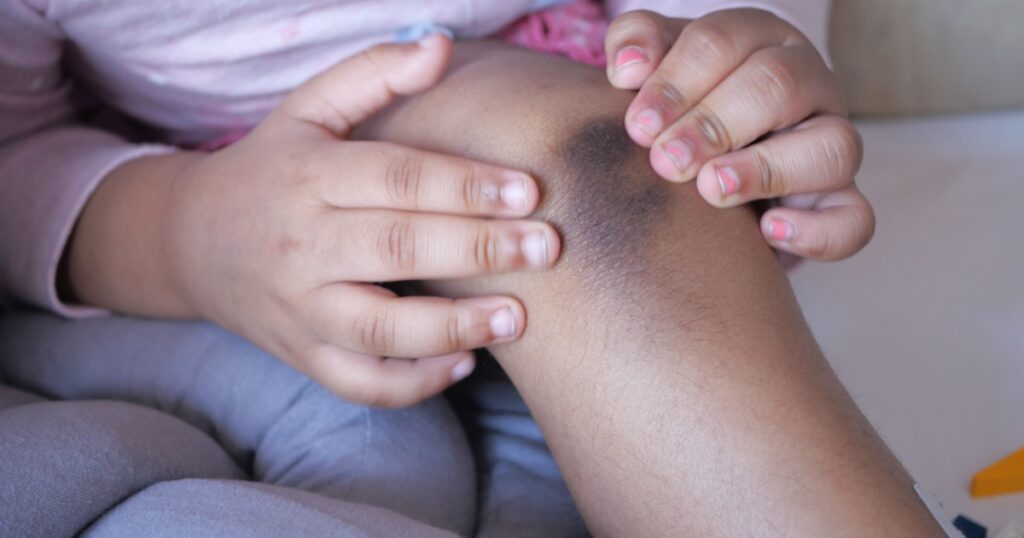
Before we delve into the reasons for easy bruising, it’s important to understand what bruises are. A bruise, also known as a contusion, occurs when small blood vessels under the skin break and leak blood into the surrounding tissue. This causes the characteristic black-and-blue color of a bruise. Bruises can be painful and unsightly, but they are usually not serious. They will typically go away on their own within a few days or weeks. However, if you have a bruise that doesn’t heal or if it gets worse over time, you should see your doctor. (1)
Read More: Bruise easily? Itchy skin? 5 signs you have liver damage without even knowing it
10 Reasons Why You’re Bruising Easily

We all get bruises from time-to-time. Maybe you took a hit in your last soccer game or bumped your elbow on the kitchen counter. If you hit something hard enough, you will get a bruise. Bruises that seem to appear at the slightest touch, for no apparent reason at all, or that don’t seem to go away, however, could be cause for concern. These are some reasons why you may be bruising easily and when to see a doctor about it.
1. Clumsiness

Are you one of those people who always seems to be bumping into things, tripping, or dropping stuff? Then you are likely always sporting some kind of bruise. Some people are just naturally more prone to bumps and knocks, leading to increased bruising. (2)
2. Active Lifestyle

If you are involved in activities that involve physical contact or impact, such as sports or manual labor, you’re more likely to experience frequent bruising. Remember, bruising is normal and doesn’t necessarily mean something is wrong. If you play a lot of sports, are very active, or work a physical job, you’re likely to get more bruises than the average person.
3. Age
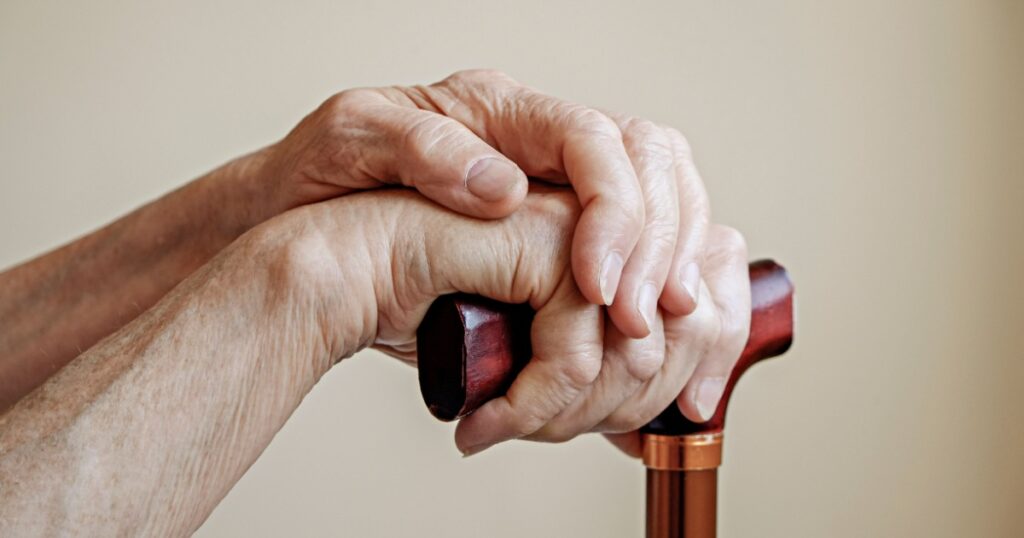
No matter what you do to prevent it, your body, and therefore your skin, changes as you age. As we get older, our skin becomes thinner and loses some of its protective fatty layer, making it more susceptible to bruising. (3)
4. Sun-damaged Skin
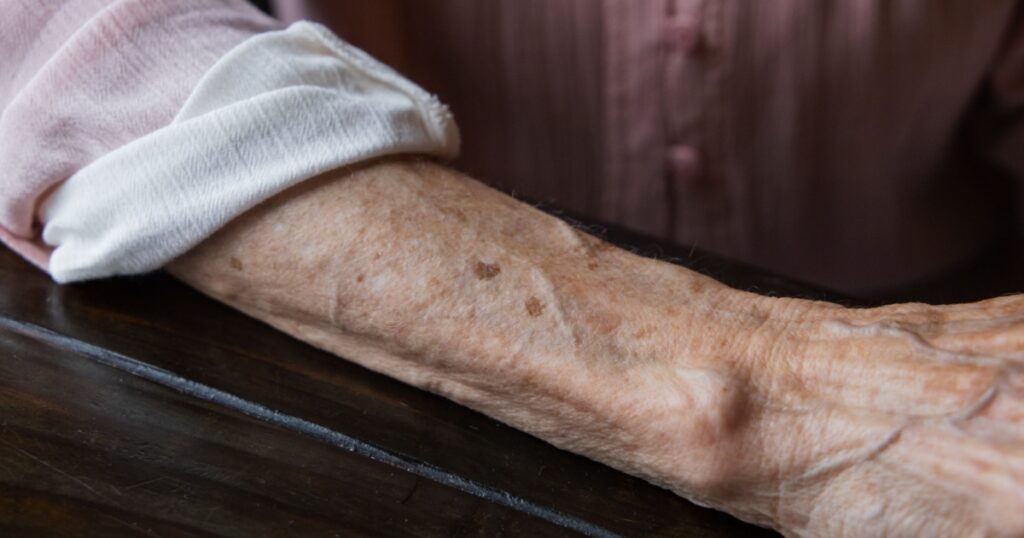
While the sun provides us with essential vitamin D, it can also do us a good deal of harm. Overexposure to the sun can cause the skin to become thinner and more fragile, making it easier to bruise. Make sure to be mindful of sun exposure. Use sunblock, hats, sunglasses, and sun protective clothing when out, particularly for long periods of time and in places where the sun is stronger. (4)
Read More: ‘Bruise’ turned out to be deadly melanoma hiding on 21-year-old’s nail
5. Steroid Use

Long-term use of corticosteroid medications can weaken the skin and blood vessels, leading to easy bruising. While this may be disconcerting, it is not a reason to stop taking medications prescribed by your doctor. Please consult with your health care provider before making any changes to your medication routine. (5)
6. Blood Thinners or Pain Killers

Blood thinners and pain medications are an important part of reactive health care. While sometimes necessary, they are not without their side effects. Medications such as aspirin, ibuprofen, or anticoagulants can impair the blood’s ability to clot, resulting in easy bruising. Again, consult your physician before making any changes to your medication routine. (6)
7. Low Blood Platelet Count
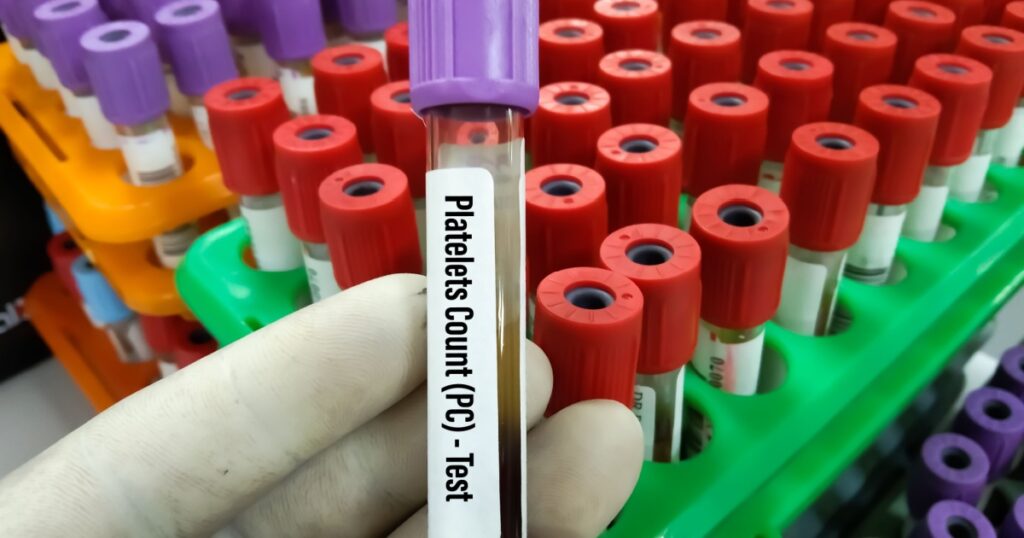
Platelets are responsible for blood clotting, and a low platelet count can lead to frequent bruising. Reasons for low blood platelet count could include bone marrow problems, autoimmune disorders, various infections, medications, and other health problems. Consult with your doctor to determine what the underlying cause for a low platelet count may be. (7)
8. Liver Damage

Liver disease can impair the production of proteins necessary for blood clotting, leading to easy bruising. If you are at risk for liver problems or liver damage, speak to your doctor. (8)
9. Bleeding Disorder
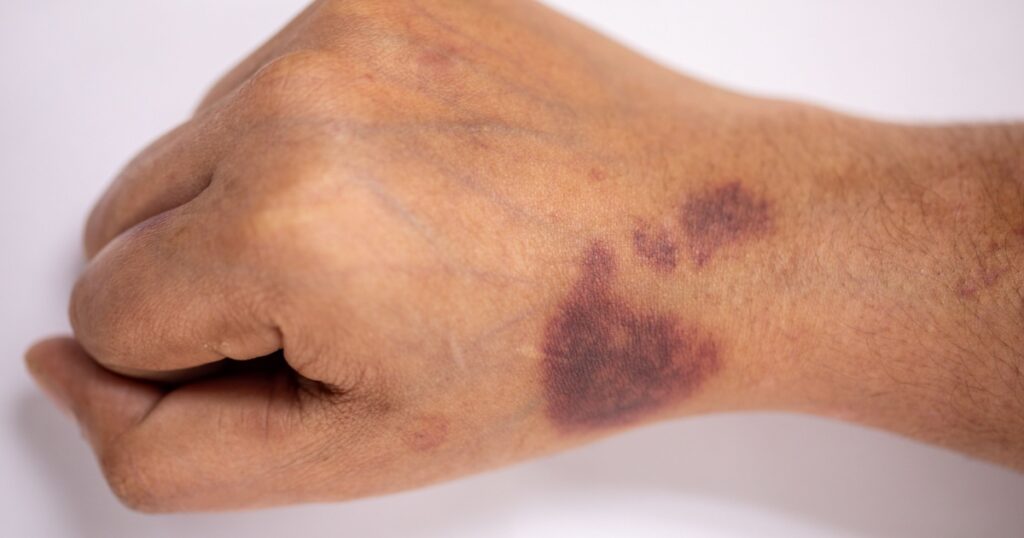
Conditions such as hemophilia or von Willebrand disease can cause abnormal blood clotting and increased bruising. These conditions can be inherited or acquired. Inherited bleeding disorders are caused by mutations in genes that control the production of proteins necessary for blood clotting. Acquired bleeding disorders are usually caused by other medical conditions, such as liver disease or cancer. (9)
Read More: 30 Cancer Survivors Share Subtle Signs They Knew Something Was Off
10. Blood Cancer
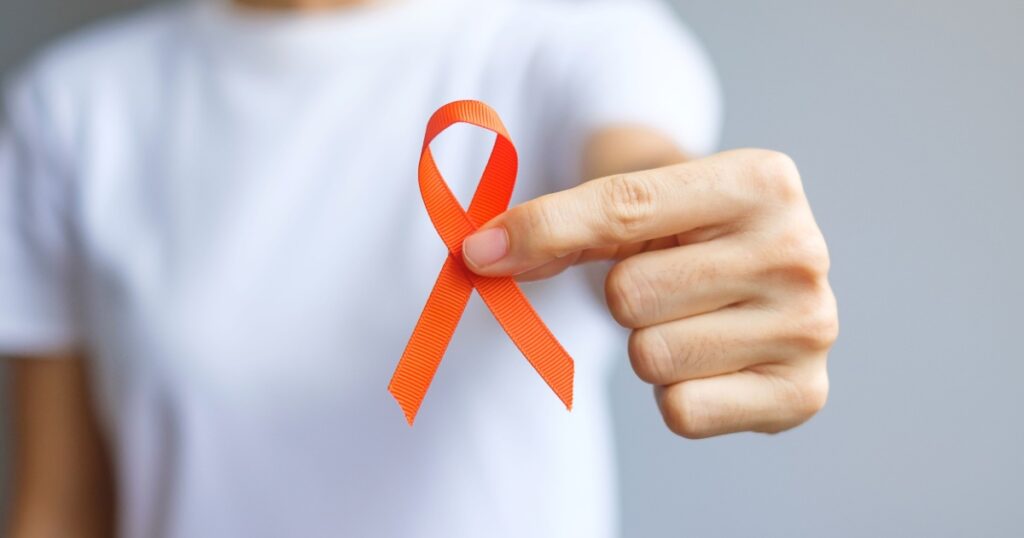
Certain types of leukemia or lymphoma can affect the production of normal blood cells, leading to easy bruising. If you have a family history of leukemia or other cancers and are concerned about your risk, talk to your doctor. (10)
Talking to your Doctor and Getting a Diagnosis

If you are experiencing frequent or unexplained bruising, it’s important to talk to your doctor. They may conduct a physical examination, review your medical history, and order blood tests to determine the underlying cause of your easy bruising. Depending on the diagnosis, the doctor may recommend lifestyle changes, medication adjustments, or further medical evaluation to address the issue.
The Bottom Line

While occasional bruising is normal, frequent or unexplained bruising should not be ignored. By understanding the reasons behind easy bruising and seeking medical advice, you can take control of your health and address any underlying issues that may be contributing to this symptom. If you’re concerned about your easy bruising, don’t hesitate to reach out to your healthcare provider for guidance and support.
Read More: Signs of Fatty Liver Disease That Show Up in Your Face
Sources
- “Bruises.” Medline Plus
- “Bruising Questions The What, Why, and How of Bruises.” News In Health. January 2022.
- “Skin integrity in older adults: pressure-prone, inaccessible areas of the body.” Mag Online Library. Drew Payne. December 24, 2019.
- “Bruising Hands And Arms.” AOCD
- “Safety of topical corticosteroids in atopic eczema: an umbrella review.” BMJ Open. Emma Axon, et al.
- “Is bruising a side effect of blood thinners?” British Heart Foundation.
- “Platelet Disorders.” MedLine Plus
- “The Provocative Roles of Platelets in Liver Disease and Cancer.” Frontiers. Preeti Kanikarla Marie, et al. July 20, 2021.
- “Clinical Evaluation of Bleeding and Bruising in Primary Car.” American Family Physician. Dana Neutze, MD, PhD and Jodi Roque,MD. 2016.
- “Skin Color Changes.” American Cancer Society.
